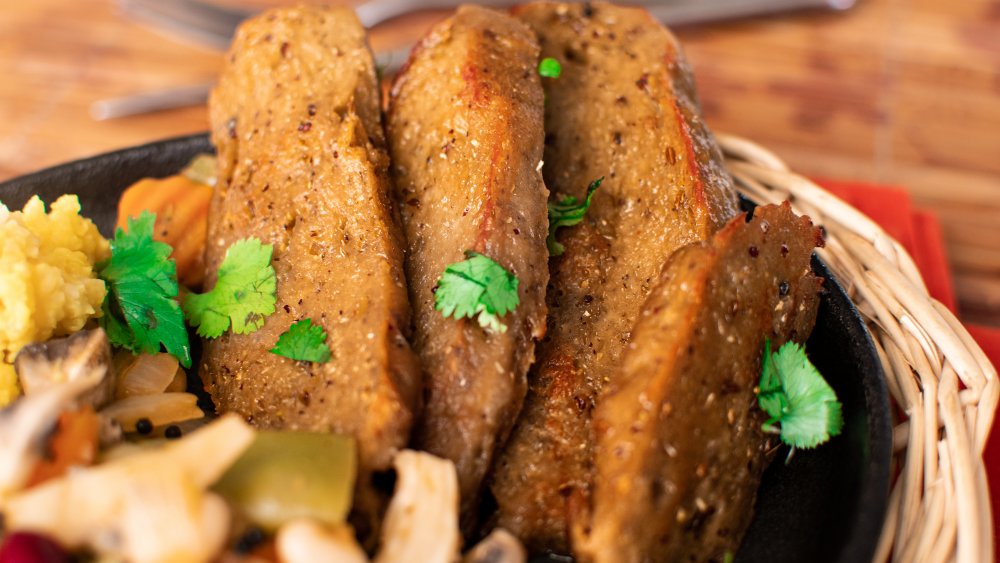Is Seitan Actually Good For You?
Vegans and vegetarians who enjoy imitation meat products, such as soy burgers, probably consume seitan regularly, which is a plant-based protein option that often appears in imitation meats. Pronounced, "say-tan" (via Well and Good), seitan is the protein left in wheat after the particles of dough have been removed, which means it's basically gluten, according to Amy Shapiro, RD and founder of Real Nutrition (via Women's Health).
A problem that comes with eating prepackaged seitan is that it is a highly processed food. It is not something that naturally occurs in nature, which makes it, by definition, processed (via Healthline). It is also often used in products that are very high in sodium or sugar. While it's true that many items are offered in low-sodium or no salt versions, which would remove those issues, the sugar can be harder to get away from and just requires paying attention to the nutrition labels on the foods you buy.
How to use seitan in a healthy way
Seitan is not always listed by name, but may be listed in the ingredients as "vital wheat gluten." It is a low-calorie, protein-heavy food. It has about 22 grams of protein, compared to only seven grams in the equivalent amount of tofu (via Well+Good). Nonetheless, it is missing vital amino acids, so it really can't be used as a protein substitute in your diet.
Seitan is not inherently unhealthy, but its downside is that it's often paired with things that aren't healthy at all. Many alternative meat products are heavily processed, and even if they aren't high in sodium or sugar, they may contain ingredients that aren't all that great for you. However, you don't have to completely avoid it. When you shop, don't just grab the first seitan you see — look for one that hasn't been processed a ton.
Seitan has been a part of Asian diets for years and can be used in a healthy manner. It is not made from soy, which makes it a good meatless alternative for those with soy allergies. Those with celiac disease or gluten sensitivity should definitely avoid seitan, as it contains gluten.
The bottom line is that seitan can be good as a meat alternative, particularly for those with a soy allergy, but it should be eaten in moderation and with careful attention to the products it is used in to make sure it's as healthy as possible.

